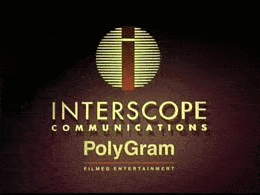Related Research Articles

Platoon is a 1986 American war film written and directed by Oliver Stone, starring Tom Berenger, Willem Dafoe, Charlie Sheen, Keith David, Kevin Dillon, John C. McGinley, Forest Whitaker, and Johnny Depp. It is the first film of a trilogy of Vietnam War films directed by Stone, followed by Born on the Fourth of July (1989) and Heaven & Earth (1993). The film, based on Stone's experience from the war, follows a new U.S. Army volunteer (Sheen) serving in Vietnam while his Platoon Sergeant and his Squad Leader argue over the morality in the platoon and of the war itself.
Orion Releasing, LLC is an American film production and distribution company co-owned by Amazon through Amazon MGM Studios. In its original operating period, the company produced and released films from 1978 until 1999 and was also involved in television production and syndication throughout the 1980s until the early 1990s. It was formed in 1978 as a joint venture between Warner Bros. and three former senior executives at United Artists. From its founding until its buyout by MGM in the late 1990s, Orion was considered one of the largest mini-major studios.

TriStar Pictures, Inc. is an American film studio and production company that is a member of the Sony Pictures Motion Picture Group, part of the multinational conglomerate Sony. It is a corporate sibling of Sony studio Columbia Pictures.
Artisan Entertainment was an American film studio and home video company. It was considered one of the largest mini-major film studios until it was purchased by later mini-major film studio Lions Gate Entertainment in 2003. At the time of its acquisition, Artisan had a library of thousands of films developed through acquisition, original production, and production and distribution agreements. Its headquarters and private screening room were located in Santa Monica, California. It also had an office in Tribeca in Manhattan, New York.

The Cannon Group, Inc. was an American group of companies, including Cannon Films, which produced films from 1967 to 1994. The extensive group also owned, amongst others, a large international cinema chain and a video film company that invested heavily in the video market, buying the international video rights to several classic film libraries. Some of their best known films include Joe (1970), Runaway Train (1985) and Street Smart (1987), all of which were Oscar-nominated.

Carolco Pictures, Inc. was an American independent film studio that existed from 1976 to 1995, founded by Mario Kassar and Andrew G. Vajna. Kassar and Vajna ran Carolco together until 1989, when Vajna left to form Cinergi Pictures. Carolco hit its peak in the 1980s and early 1990s, with blockbuster successes including the first three films of the Rambo franchise, Total Recall, Terminator 2: Judgment Day, Basic Instinct, Universal Soldier, Cliffhanger and Stargate. Nevertheless, the company was losing money overall and required a corporate restructuring in 1992. The 1995 film Cutthroat Island, intended to be a comeback for the studio, instead lost $147 million and brought the company to an end.

Embassy Pictures Corporation was an American independent film production and distribution studio, active from 1942 to 1986. Embassy was responsible for films such as The Graduate, The Producers, The Fog, The Howling, Escape from New York, and This Is Spinal Tap, Swamp Thing, and television series such as The Jeffersons, One Day at a Time and The Facts of Life.

Interscope Communications was a motion picture production company founded in 1982 by Ted Field. It soon became a division of PolyGram Filmed Entertainment.
Sony Pictures Home Entertainment Inc. is the home entertainment distribution division of Sony Pictures Entertainment, a subsidiary of Sony.
EMI Films was a British film studio and distributor. A subsidiary of the EMI conglomerate, the corporate name was not used throughout the entire period of EMI's involvement in the film industry, from 1969 to 1986, but the company's brief connection with Metro-Goldwyn-Mayer and Anglo-EMI, the division under Nat Cohen, and the later company as part of the Thorn EMI conglomerate are outlined here.
Empire International Pictures was an American independent small-scale theatrical distribution company. Charles Band formed Empire in 1983, prompted by his dissatisfaction with distributors' handling of films made by his previous business, Charles Band International Productions. Empire produced and distributed a number of low-budget horror and fantasy feature films, including Re-Animator, Troll, Ghoulies, Trancers, and From Beyond.

Coca-Cola Telecommunications (CCT) was a short-lived first-run syndication unit of Columbia Pictures Television created on November 4, 1986, that was a merger between CPT's first-run syndication division and The Television Program Source. The Television Program Source was a joint-venture between Alan Bennett, former King World president Robert King, and CPT that was founded on October 15, 1984.
Producers Sales Organization was an independent motion picture production and sales company founded in 1977. Initiated by Mark Damon, an actor-turned-producer, PSO mostly handled foreign sales of independent films. It was initially a partnership between Damon, producer Sandy Howard, and Richard St. Johns, who worked for Arthur Guinness Son & Co. At one point, it was a subsidiary of Guinness.

Vestron Video was the main subsidiary of Vestron, Inc., a home video company based in Stamford, Connecticut, that was active from 1981 to 1993, and is considered to have been a pioneer in the home video market.

Vestron Pictures was an American film studio and distributor, a former division of Austin O. Furst, Jr.'s Vestron Inc., that is best known for their 1987 release of Dirty Dancing.
Alliance Films was a Canadian motion picture distribution and production company, which had served Canada, the United Kingdom, and Spain.
John Daly was a British film producer.

Home Box Office, Inc. (HBO) is an American multinational media and entertainment company operating as a unit of Warner Bros. Discovery.
Nelson Entertainment was a Los Angeles-based film production and home video distribution company, a subsidiary of Nelson Holdings International Ltd., a Vancouver, Canada, holding company formed in 1985 by British film producer Barry Spikings and Richard Northcott, a British financier who amassed his fortune from a chain of hardware and furniture stores.
References
- 1 2 "High-risk Movie Mogul". Chicago Tribune. Retrieved 2018-01-30.
- ↑ "Movie Call Sheet". The Los Angeles Times. 18 October 1967. p. 94.
- ↑ "Star Stake". Daily Mirror. 8 October 1968. p. 23.
- ↑ "Hemdale Group Expansion". The Daily Telegraph. 14 November 1969. p. 22.
- ↑ "Rift in the Hemdale Group". The Birmingham Post. 8 August 1970. p. 4. (subscription required)
- ↑ "management split at Hemdale". The Guardian. 8 August 1970. p. 10.
- ↑ "Hemdale dealings come to a halt". Evening Standard. 14 September 1970. p. 6.
- ↑ "Profits at Hemdale fall just short of target". Evening Standard. 19 July 1971. p. 31.
- ↑ "Hemmings' Reunion". Evening Standard. 12 January 1973. p. 20.
- 1 2 3 4 5 Lambie, Ryan (7 April 2015). "The Rise and Fall of Hemdale". Den of Geek. Archived from the original on 4 March 2021. Retrieved 8 November 2020.
- ↑ John Daly biography - Yahoo Movies Archived February 24, 2007, at the Wayback Machine
- ↑ Thomas, Bob. "Independent filmmakers may produce over half of releases." Associated Press (October 23, 1986). Retrieved on April 1, 2011.
- ↑ "High-risk Movie Mogul". Chicago Tribune. Retrieved 2018-08-27.
- ↑ "Hemdale Revamp Reflects Twin Thrust: Film Production & Foreign Sales". Variety . 1983-05-04. p. 83.
- ↑ "Domestic Distribution Arm Set by Hemdale; Name Myers Boss". Variety . 1985-11-27. pp. 4, 37.
- ↑ Todd McCarthy (March 5, 1986). "Film reviews - Salvador". Variety .
- ↑ "1986 U.S. Film Releases by Company". Variety . February 19, 1986. p. 283.
- ↑ Cohn, Lawrence (1986-05-14). "Hemdale On The Move Acquiring Product for U.S. Distrib Arm". Variety . p. 7.
- ↑ Groves, Don (1986-06-25). "Hemdale Committing $10-12 Mil To Prebuy Eight Aussie Projects". Variety . p. 4.
- ↑ "Hemdale Deals Pix". Variety . 1986-06-25. p. 42.
- ↑ Melanson, James (1986-09-10). "Hemdale Pix-Pack To HV; Brings $20-Mil For Rights". Variety . p. 88.
- ↑ "Hemdale Suing Interlink Over Distrib Shortfall". Variety . 1986-12-10. pp. 5, 28.
- ↑ Greenberg, James (1987-03-18). "Hemdale 'Taken Over' By Computer Firm; Will Get $29-Mil Infusion". Variety . pp. 3, 32.
- ↑ "Nelson Gets Domestic HV Rights To 10 Pictures From Hemdale". Variety . 1987-03-18. p. 72.
- ↑ "'PLATOON' VIDEO WAR CONTINUES IN COURT". Chicago Tribune. 29 October 1987. Retrieved 2022-03-14.
- ↑ "Nelson Steps Into Vestron-Hemdale Suit". Variety . 1987-06-03. p. 59.
- 1 2 3 4 "Former Hemdale exex target of NSB lawsuit". Variety . 1994-03-02. Retrieved 2018-08-27.
- ↑ Brennan, Judy (1992-10-27). "Creditors file request to put NSB Corp. into default". Variety . Retrieved 2018-08-27.
- ↑ "Hemdale Sets Up Homevid Division". Variety . 1991-05-06. Retrieved 2018-01-22.
- 1 2 Ayscough, Suzan (1993-05-12). "CL, guilds pact against Hemdale". Variety . Retrieved 2018-08-27.
- ↑ Brennan, Judy (1993-03-26). "Hemdale haunts Lyonnais". Variety . Retrieved 2018-08-27.
- 1 2 Cox, Dan (1994-04-04). "Former Hemdale unit settles Guild/Bank suit". Variety . Retrieved 2018-08-27.
- ↑ Allbusiness.com Hemdale Communications Inc. announces resignation of chairman John Daly and president Derek Gibson; March 6, 1995 Archived January 22, 2010, at the Wayback Machine
- ↑ "Shakeup At Hemdale". Variety . 1995-03-13. Retrieved 2018-01-22.
- ↑ "Bailout Partners Take Control of Hemdale". Billboard. 1995-11-25. p. 86.
- ↑ "TCR_Public/951109.MBX". www.bankrupt.com. Retrieved 2018-01-23.
- ↑ "Carolco I: Cleared for Action!" (PDF). American Radio History. 27 March 1989. Retrieved 18 February 2019.